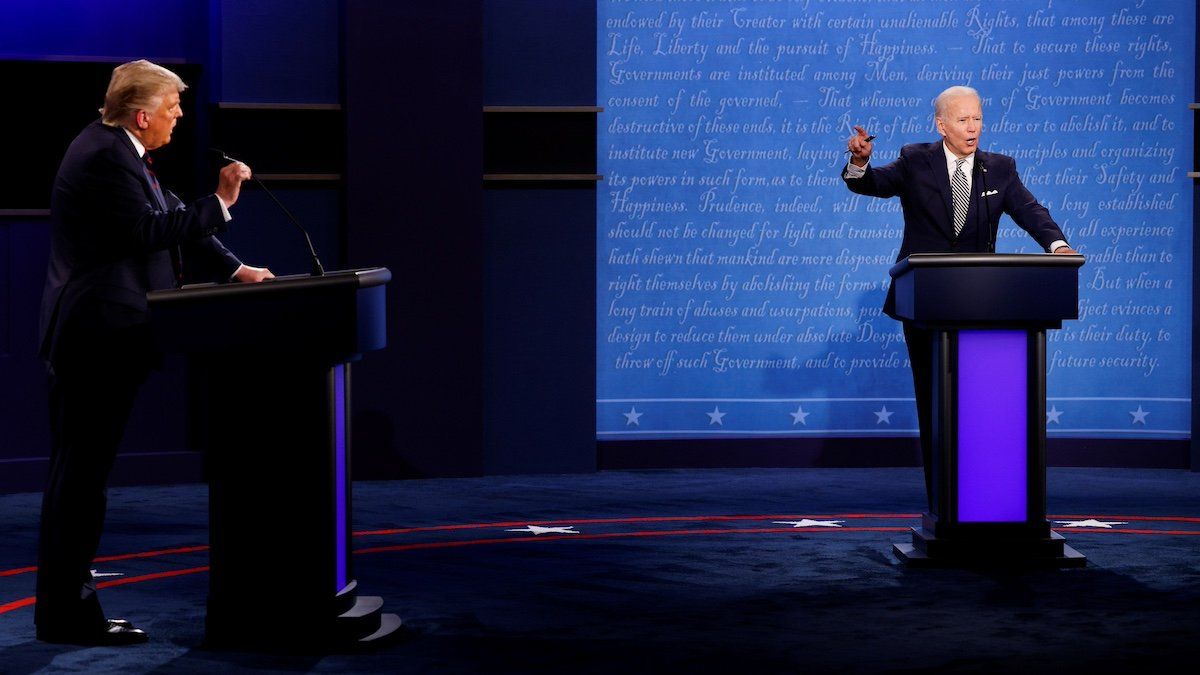It’s on. We don't mean the Jake Paul vs. Mike Tyson boxing “match” but an even higher profile smackdown that might not be a whole lot more substantive: President Joe Biden and Donald Trump have agreed to two head-to-head presidential debates.
The first will be hosted by CNN on June 27 – making it the earliest presidential debate in modern history. The second will be run by ABC on Sept. 10. Neither will have a live audience.
Biden had earlier kiboshed any debates hosted by the nonpartisan debate commission, which has run them since the 1980s. Those live-audience faceoffs typically take place in September, after early voting begins.
Why are they doing this? Biden, trailing Trump in the polls, hopes to make his famously erratic opponent sweat, says Clayton Allen, a US expert at Eurasia Group. “He’s betting that Trump, stressed by the criminal trial and maybe facing a guilty verdict, will implode, or look bad in the spotlight.”
Trump, meanwhile, is hoping that in the heat of debate, Biden will have one (or more) of those moments where he looks old, unsteady, or confused. In short, says Allen, he’s betting on “Biden falling asleep.”
One guy might look crazy, the other might look senile – American democracy is truly a city on a hill!
